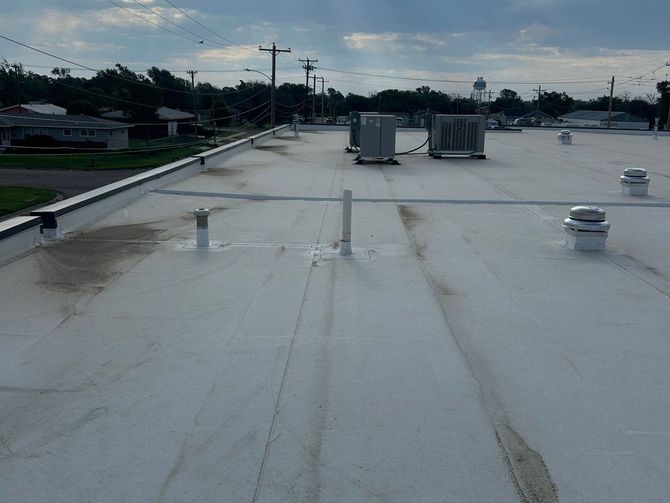When it comes to industrial roofing, choosing the right system is crucial for the longevity and safety of your property. Whether you’re installing a new roof or maintaining an existing one, understanding the different roofing options and their specific needs can save you time, money, and headaches. In this article, we’ll guide you through the essentials of industrial roofing systems and help you make informed decisions about your next roofing project.
Important Factors to Consider in Industrial Roofing Projects
Because industrial roofing projects are complex, understanding the unique requirements of your property is essential. Here are the key factors to consider:
- Building Use: Different industrial buildings may have varying needs, such as heat resistance, weather durability, or soundproofing. Understanding your building’s purpose helps select the right roofing system.
- Environmental Conditions: Different weather conditions, like extreme heat, heavy rainfall, or snow, can influence the durability of your roofing system. Choose materials suited to your area’s environment.
- Budget: While industrial roofing can be costly, finding the right balance between quality and affordability ensures you get the best return on investment.
- Energy Efficiency: Energy-efficient roofing materials can reduce your long-term energy bills. Look for options that enhance insulation and reduce heating and cooling needs.
Types of Industrial Roofs: Built-Up, Metal, and Modified Bitumen
Various industrial roofing systems are available, each with unique benefits depending on the requirements of your building. Here are the most common types.
Built-Up Roofs (BUR)
Built-up roofing (BUR) is made of multiple layers, usually tar and gravel, offering excellent waterproofing. BUR is durable and well-suited for large industrial roofs, though its installation can be time-consuming.
Metal Roofs
Metal roofs are widely used in industrial settings because of their durability and low maintenance. They withstand harsh weather conditions and are energy-efficient, reflecting sunlight to cut cooling costs. Various materials, such as steel and aluminum, are available.
Modified Bitumen Roofs
Modified bitumen is a hybrid material that combines asphalt and rubber or plastic, offering flexibility and long-term durability. It is ideal for low-slope industrial roofs and can be installed using heat or cold methods.
Maintenance Tips to Extend the Life of Your Industrial Roof
Regular maintenance is essential to extending the lifespan of your industrial roof and avoiding costly repairs. Here are some maintenance tips to keep your roof in top condition:
- Regular Inspections: Regular inspections by professionals can help detect early issues like cracks, leaks, or debris accumulation before they turn into major problems.
- Clean Gutters and Drains: Clear gutters and drains of debris to prevent water buildup that could result in roof damage.
- Prompt Repairs: Fix any roofing issues immediately to avoid worsening damage. Delaying repairs could lead to costlier problems down the road.
- Coating and Sealing: Protective coatings and sealants can prevent moisture and UV damage, helping to extend the roof's life.
The Importance of Hiring a Specialized Roofing Contractor
Industrial roofing projects are complex and require specialized knowledge and skills. Hiring a contractor with experience in industrial roofing ensures that your roof is installed correctly and maintained properly. A specialized contractor can help you choose the right materials, manage the installation process, and provide ongoing support to keep your roof in optimal condition. Don’t compromise on quality—work with an expert who understands the unique needs of industrial roofing.
Conclusion: Industrial Roofing That Meets Your Business Needs
Selecting the right industrial roof is key to safeguarding your property and ensuring it lasts long-term. Understanding your options—BUR, metal, or modified bitumen—will guide your decision. With a specialized contractor, you can ensure optimal installation and maintenance for years of protection.
Looking for a trusted roofing partner for your industrial needs? Reach out to us today for tailored roofing solutions and expert guidance!

#IndustrialRoofing #CommercialRoofing #RoofInstallation #BuiltUpRoof #MetalRoofing #ModifiedBitumen #RoofMaintenance #EnergyEfficientRoofing